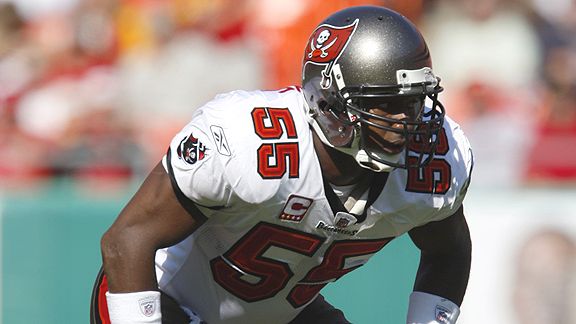With the high profile suicide of all pro linebacker Junior Seau and the subsequent lawsuit brought about by former players over concussions the NFL has to get it's arms around this issue plus a few more.
When players leave the league they seem to go through an identity crisis. I don't believe that this is any different from someone who is laid off or suddenly finds themselves without a job. Your left asking a series of questions such as:
- What do I do next?
- Who am I?
- What am I supposed to be doing?
If you haven't taken the time to plan for something like this you can easily find yourself spiraling out of control. Paralyzed by fear and worry you don't know what to do or where to turn next. After living the same routine for years on end and to be suddenly removed from that schedule can have unintended consequences.
Full story on this topic from ESPN's Jeff Chadiha
- Currently the football-watching world is filled with constant stories about the brutal long-term consequences of concussions. Many suspect the recent suicide of former star linebacker Junior Seau -- who shot himself at age 43 -- is related to the pounding he absorbed for 20 seasons. But former players say issues such as dementia and chronic traumatic encephalopathy aren't the only major problems associated with retirement. They also know about financial ruin, imploded marriages and the emotional trauma that comes with thinking your life peaked in your 20s.
- Terrell Owens hasn't officially retired yet, and he already has blown the $80 million he earned during his career. Warren Sapp recently filed for bankruptcy. Former first-round picksMichael Bennett and William Joseph currently face federal charges of tax fraud and identity theft. Not every player falls into these traps, but a 2009 Sports Illustrated study said that 78 percent of NFL retirees have "gone bankrupt or are under financial stress because of joblessness or divorce" within two years of their careers ending. "You're talking about an identity crisis," said NFL vice president of player engagement and former Pro Bowl cornerback Troy Vincent. "Every athlete has to face the same question when they're done: 'Who am I?'"
- "Everybody does go through it to a certain degree," said former NFL quarterback Trent Green, who went into broadcasting after his career. "The hardest part is your daily routine. For 15 years, I knew exactly what I was doing in March, June and September because there was a schedule. When you take that away, you suddenly have a lot more time on your hands. I've been out of the game since 2008, and I still have a tough time with it. I find myself thinking, 'What's my motivation today?'"
- Lack of structure factors into the problems athletes face after football, but their personalities create big issues as well. Football players are hard-wired to focus on one play at a time, to dismiss potential distractions and quickly forget about costly mistakes. Said former Tampa Bay Buccaneers linebacker Derrick Brooks: "Players always say the football field is a safe haven, that you can go there and block everything else out. But what do you do when that's gone and you have to deal with life? It can be a double-edged sword. I tell people all the time that you can retire from football. You can't retire from living."
 |
| Jamie Squire/Getty Images |
- Such an unchecked ego can lead to the first and most devastating problem for players in retirement: financial ruin. Even though the average NFL career lasts roughly three years -- and the league doesn't offer guaranteed contracts -- there is ample evidence that the longer a player plays, the more likely he is to ignore the financial realities of his world. Some don't fully grasp that eligible retirees can't touch their pensions until they're 45 years old. They can't cash in their 401(k) plans until they're 59½. For a player whose career ends in his early 30s, that's a long time to be hurting for cash.
- Some have a hard time comprehending other aspects of money management. When the recession hit in 2008, one league source said former Washington Redskins running backClinton Portis actually walked into the locker room and complained about having to curtail his spending. "Nobody told me this recession affects everybody," he famously said that day. Ivan Thornton, a senior partner with the Fiduciary Management Group, added that players can wind up in bad investments because "the average adviser won't give pushback because he'll get fired. You'll have some players earning 7 percent on their investments, but then they'll be listening to their teammate telling them there's a guy who can get them 18 percent."
- The most damaging part of such financial ineptitude is the ripple effect it creates. Money woes strain marriages and leave many players scrambling for cash to pay for child support, back taxes or homes and cars purchased for loved ones. Those who can't find work in broadcasting or coaching can quickly panic when the money evaporates. The players who tend to have an easier time dealing with such realities usually either had careers that started without great acclaim or didn't play long in the league.

No comments:
Post a Comment